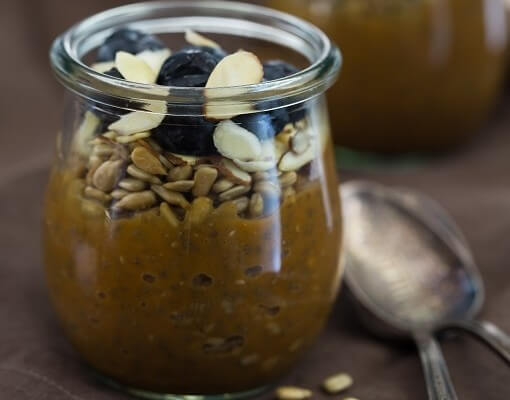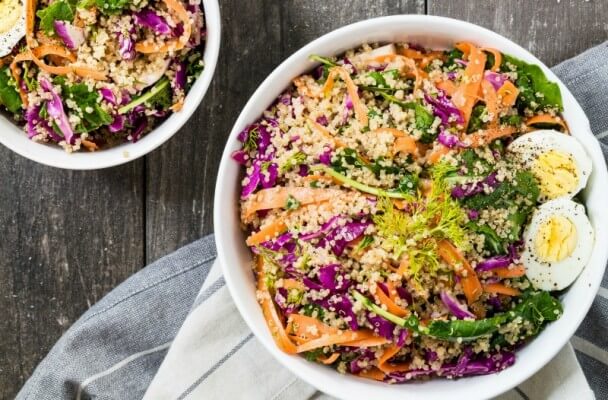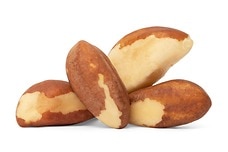Zinc
Zinc is one of the essential minerals the body needs to function properly. Zinc is naturally present in certain foods and may also be obtained through dietary supplements. It is important for numerous aspects of cellular metabolism. Ensuring you get enough zinc will keep your body functioning optimally and may reduce the risk of certain diseases.
What Is Zinc?
Zinc is a chemical element, meaning that it is made up of one type of atom. Chemically, zinc is similar to magnesium, but it plays a unique role in human physiology. Zinc is found in every tissue in the human body. Approximately 85% of the body’s zinc is found in muscle and bone, with an additional 11% in the liver and skin (Tapiero & Tew, 2003). Within these tissues, zinc is located almost exclusively inside of cells, rather than circulating through the bloodstream or extracellular space.
In the body, zinc plays a variety of roles. Many enzymes are made of proteins with a zinc molecule at their reactive center. In fact, zinc is thought to be important for the activity of more than 100 types of enzymes (United States National Research Council, 2000). Furthermore, zinc ions provide structure to transcription factors that control a cell’s ability to “read” genetic code. Zinc also assists with metabolism, creation and storage of hormones, and structural maintenance of the cell (Tapiero & Tew, 2003).
Zinc is Associated with Certain Health Conditions
Getting enough zinc is important for overall health. Failure to consume adequate amounts of the mineral is particularly harmful in childhood, when it can inhibit growth and cognitive development. In people of all ages, getting enough zinc boosts the immune system and reduces risk of infectious disease (Ho, 2013). This is particularly important for immunocompromised individuals such as those with HIV/AIDS. Some scientific evidence also suggests that zinc reduces risk of macular degeneration during aging (Ho, 2013).
Recommended Dietary Allowance for Zinc
The recommended dietary allowance for zinc depends on age and sex (Wax, 2015). Adult men (19 years and older) should aim to get 11 mg of zinc per day while adult women (19 years and older) need 8 mg. A woman’s zinc needs increase to 11 mg per day during pregnancy, while breastfeeding women need 12 mg daily.
It is possible to get too much zinc in the diet. At very high levels of zinc consumption, it is possible to develop a copper deficiency or other adverse health effects (e.g. reduced immune function). A Tolerable Upper Intake Level (UL) is established for zinc: adult men and women should get no more than 40 mg of zinc per day, either from dietary or supplemental sources. People who use certain denture creams that contain zinc may want to be particularly careful to avoid overconsumption of this mineral (National Institutes of Health, 2016).
Risk Factors and Symptoms of Zinc Deficiency
Zinc deficiency can be a significant health problem. In severe cases of zinc deficiency, individuals fail to grow and develop normally, experience severe diarrhea, have immune system weakness, and exhibit behavioral disturbances. Mild zinc deficiency is more common and is characterized by higher susceptibility to infection, impaired physical development, difficulty tasting or smelling, and cognitive problems (Wax, 2015).
Certain groups of people are more likely to develop zinc deficiency, including:
- Premature infants or those with low birth weight
- Children and adolescents
- Pregnant or breastfeeding women
- People with eating disorders such as anorexia nervosa
- Individuals with celiac disease or other malabsorption syndromes
- People with Crohn’s disease or ulcerative colitis
- Alcoholics
- Chronic renal disease patients
- Strict vegetarians
Food Sources of Zinc
Zinc is naturally available in a wide variety of foods, including the following (Ho, 2013):
- Oysters (6 medium): 27 to 50 mg zinc
- Crab (3 oz.): 4.7 mg
- Baked beans (½ cup): 2.9 mg
- Beef (3 oz.): 5.8 mg
- Cashews (1 oz.): 1.6 mg
- Almonds (1 oz.): 0.9 mg
- Peanuts (1 oz.): 0.9 mg
- Yogurt (1 cup): 1.8 mg
It is important to obtain dietary sources of zinc that have high bioavailability, meaning that much of the zinc can be absorbed and used in the body. Foods that contain sulfur-containing amino acids facilitate zinc absorption, which means that shellfish and red meats are excellent sources of this mineral. Plant proteins that are high in phytic acid may have somewhat more limited zinc bioavailability, but they still make good dietary sources of zinc. However, strict vegetarians must be careful to get enough zinc through their diets because they rely exclusively on plant sources of the mineral.
Whenever possible, it is best to get zinc from foods rather than supplements. This is because dietary zinc is present with other compounds that facilitate its absorption and have synergistic effects on the human body. For example, the presence of zinc facilitates the absorption of vitamin A (Ho, 2013). However, supplemental levels of iron -- but not dietary levels -- may reduce zinc absorption (Ho, 2013). High levels of calcium may also inhibit zinc uptake and bioavailability.
Recipes with Zinc
These recipes contain foods that are naturally rich in the zinc! Add these foods to your diet to ensure you meet your recommended dietary allowance, and discover more ways to add the element to your diet by checking out our article on snack and food sources of zinc!

Pumpkin Chia Seed Pudding Recipe
This concoction combines key sources of zinc into a single cup to produce a palatable pudding with the pleasant palate of pumpkin, including sliced almonds and sunflower seeds. Most milks you might opt to include also offer a hearty helping of the mineral.
Ingredients: Milk, pumpkin puree, chia seeds, maple syrup, pumpkin spice, sunflower seeds, sliced almonds, fresh blueberries.
Total Time: 10 minutes
| Yield: 4 servings

Kale Quinoa Salad Recipe
A combinations of broccoli and quinoa offer an abundance of many nutrients, and zinc is no exception. What makes the zinc content of this dish even more impressive is the inclusion of tomatoes and pumpkin seeds, both of which offer good sources of the nutrient.
Ingredients: Quinoa, fresh baby kale, purple cabbage, carrots, fresh dill, boiled eggs, rice wine, extra virgin olive oil, black pepper.
Total Time: 25 minutes
| Yield: 8 servings
Snacks to Supplement Your Intake of Zinc
Need ideas for snacks to get your daily dose of zinc? We’ve provided some samples below, and have even more ideas available here.
Healthy Eating
- Healthy Snacks
- Healthy Highlights
- 5 Uses for Cacao Powder
- 5 Ways to Eat Farro
- 6 Best Gluten-Free Foods
- Alcohol and the Body
- Almond Flour Recipes
- Anti-Aging Superfoods
- Beat the Afternoon Slump
- Benefits of a Plant-Based Diet
- Benefits of Baobab
- Benefits of Cashews
- Benefits of Coconut Oil for Hair
- Benefits of Coconuts
- Benefits of Dates
- Benefits of Fenugreek
- Benefits of Garcinia Cambogia
- Benefits of Goji Berries
- Benefits of Kale Chips
- Benefits of Monk Fruit Sweetener
- Benefits of Peanuts
- Benefits of Pecans
- Benefits of Pistachios
- Benefits of Pumpkin Seeds
- Benefits of Spelt Flour
- Benefits of Steel Cut Oats
- Benefits of Sunflower Seeds
- Benefits of Tiger Nuts
- Benefits of Turmeric
- Benefits of Walnuts
- Benefits of Wheatgrass
- Best Food Fads
- Cacao vs Cocoa
- Caffeine-Free Energy Foods
- Chocolate That's Good for You
- Diet vs. Exercise
- Fat Burning Foods
- Food Myths Debunked
- Foods for Bone Density
- Foods for Colon Health
- Foods for Healthy Hair
- Foods for Healthy Skin
- Foods to Help Sleep
- Foods to Reduce Stress
- Green Tea Benefits
- Healthy Baking Flours
- Heart Healthy Habits
- High Protein Health Risks
- How to Boost Your Metabolism
- How to Lose Weight While Aging
- How to Throw a Vegan BBQ
- Kaniwa vs Quinoa
- Little Health Foods
- Low-Carb: Fad or Friend?
- Making Healthier Desserts
- Mediterranean Diet Meal Plan
- Natural Beauty Products
- Nuts for Weight Loss
- Preparing Vegan Meals
- Preventing Muscle Degeneration
- Rare Superfoods
- Reduce Sugar Intake
- Save Time By Going Vegan
- Smarter Snack Swaps
- Smoothie Ingredients
- Soy Protein vs Whey Protein
- Starting a Plant-Based Diet
- Steel Cut vs Rolled Oats
- Sugar Substitutes
- Vegan Proteins
- Vegan Substitutions for Fall Recipes
- Why Go Vegan
- Healthy Meals
- Healthy Recipes
- Sports Nutrition
- Nutrition and Special Diets
- 21 Day Fix
- 5 Popular Diet Similarities
- Alkaline Diet
- Anti-Inflammatory Diet
- Calorie Counting
- Carb Cycling Diet
- Celiac Disease
- Cholesterol
- Clean Eating
- Crohn's Disease
- DASH Diet
- Detox Diet
- Diabetes
- Diabetes Diet
- Diet Pill Dangers
- Fat Burning Foods
- Gluten-free Diet
- Glycemic Index
- Heart Health
- High Blood Pressure Diet
- High Fiber Foods
- How to Eat Healthy
- How to Lower Blood Pressure
- Hypertension
- IBS Diet
- Ketogenic Diet
- Liquid Diet
- Low GI Foods
- Low-Carb Diet and Foods
- Low-Fat High-Carb Diet
- Mediterranean Diet
- Mediterranean Diet Foods
- Military Diet
- Nutrition Labels Explained
- Paleo Diet
- Raw Food Diet
- Superfoods
- Sustainable Weight Loss
- Thrive Diet
- Vegan Diet
- Vegetarian Diet
- Weight Loss Shakes
- Whole30

